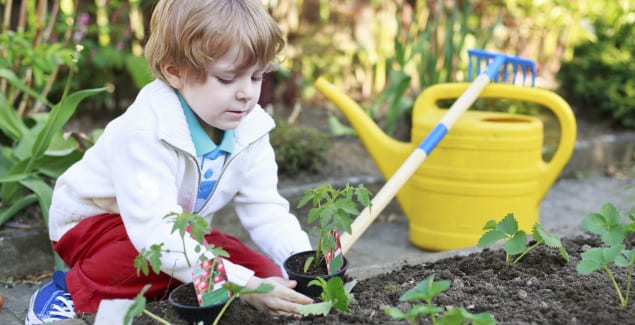Learning Over The Summer

Posted in: Grade School, Teenagers, You & Your Family
Topics: Healthy Living
When parents of school-aged kids think about summer vacations, what would you expect their favorite part to be? Taking the kids to the beach? Sleeping in late? Foregoing the school year’s rigid schedule? Nope. Most parents say that their favorite part of summer vacation is…NO HOMEWORK! Homework is not only the bane of children’s existence, it is the curse of their parents,’ too.
Kids work hard during the school year, so it might be tempting to let them off the hook for the summer. After all, they need a break from the daily routine of homework and role learning. They need to play, swim, hang out and spend time with family. Kids need time to just be kids. However, kids do experience learning losses over the summer. In fact, research has shown that students typically score lower on standardized tests at the end of summer vacation than they do at the beginning. As most students lose about two months of grade equivalency in math skills over the summer, teachers end up spending an average of four to eight weeks every fall reviewing concepts their students may have forgotten. These statistics are even truer for lower income children, and those at risk for learning problems.
So, what’s a parent to do? You want to make sure your child is able to have fun without losing the important knowledge she gained during the school year. Actually, it’s not that tough if you can think about learning as a broader concept. Summer can be a wonderful time to turn your child “on” to different forms of learning, and to spark her curiosity about the surrounding world. Here are some tips to help:
- Grow a garden. Gardening teaches kids about science. Botany, weather, earth science—all can be “taught” through growing vegetables and flowers. Vegetables are particularly good, as they also teach children where food comes from. As an added bonus, if you have a picky eater, he might be more apt to try eggplant if he grew it himself.
- Do a project together. Think outside the box. Is there a household project that you’ve been putting off? Have your child work with you on it. Laying bathroom tile may not at first sound like an educational opportunity, but it teaches a child about length, width and fractions in a hands-on way that many need in order to internalize the concepts. Build a bookshelf for your child’s room, or a birdfeeder for the backyard. Activities such as these teach math concepts in a way children will remember.
- Find places to visit that teach children about something. Whether you’re going far away or staying near home this summer, there are places you can visit that teach children how things are made. A visit to an ice cream factory or a glassblowing studio can be a fun and educational way for kids to learn more about how the world works. Many kids don’t like the typical museum experience, so this can be a good opportunity to help them learn about something in a way that is active and interesting.
- Start an investment club or help your child learn about the value of investing. If you are the type of parent who follows the stock market, give your child or teen some money to invest. It can be as little as $50.00, but if you’d rather not invest “real” money, consider starting a virtual investment club.
- Have your child plan a family activity day. Decide how much money you can spend, and have your child research an affordable activity you can all do together. This type of activity teaches research and executive function skills such as time management, organization and budgeting. If you’re feeling adventurous, have them plan an entire vacation by consulting the Internet and guidebooks, and making a reservation online.
- Start a book club—even if it’s just the two of you reading the same book at the same time. If you wish to start a book club with a larger group, here are a few suggestions.
- Take your child shopping using cash. I’m always surprised at how increasingly common it is that young people who work in stores are not able to make change. High school students in honors calculus will not know what to do when you give them $10.13 to pay for something that costs $7.13. Give your child $5.00, and have him buy something at the beach shack, ice cream truck, or hardware store—and make sure he knows what he can afford and how much change he should get after his purchase.
- If you’re an active family, use a stopwatch to time yourselves biking, swimming, or running. Try to beat your time, and graph your results. If you’re not an active family, get active! Children not only lose academic knowledge over the summer, most—especially those at high risk for obesity—gain weight more rapidly when they are out of school for the summer months.
The best thing you can do is have a plan. Discuss the options for summer vacation with your child. Talk about what she wants to do, and how she’s going to do it. If you have more than one child, don’t expect them both to have the same plan. Help your child(ren) set goals, and work toward achieving them. You may be surprised with what they come up with, how much they learn, and how much fun you will have in the process.
Was this post helpful?
Newsletter
Subscribe Today
Your monthly dose of the latest mental health tips and advice from the expert team at The Clay Center.
SubscribeMultimedia
Quick Jumps
Tag Cloud
-
addiction
ADHD
adolescents
anorexia
anxiety
autism
behavior
CBT
child development
children
college
communication
covid-19
depression
digital media
dyslexia
eating disorder
evaluation
family
fear
healthy development
learning
learning disabilities
learning disability
mental health
mental illness
parenting
parents
Podcast
PTSD
relationships
resilience
school
shrinking it down
social media
stigma
stress
suicide
technology
teenagers
teens
therapy
trauma
treatment
violence

 Share
Share Tweet
Tweet





